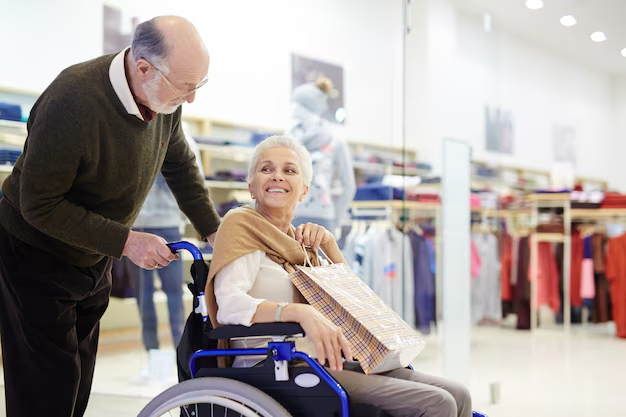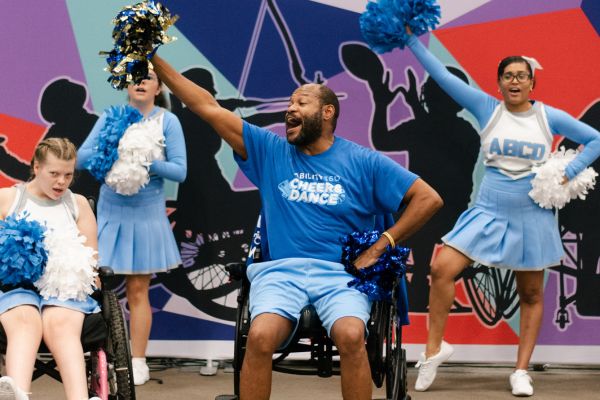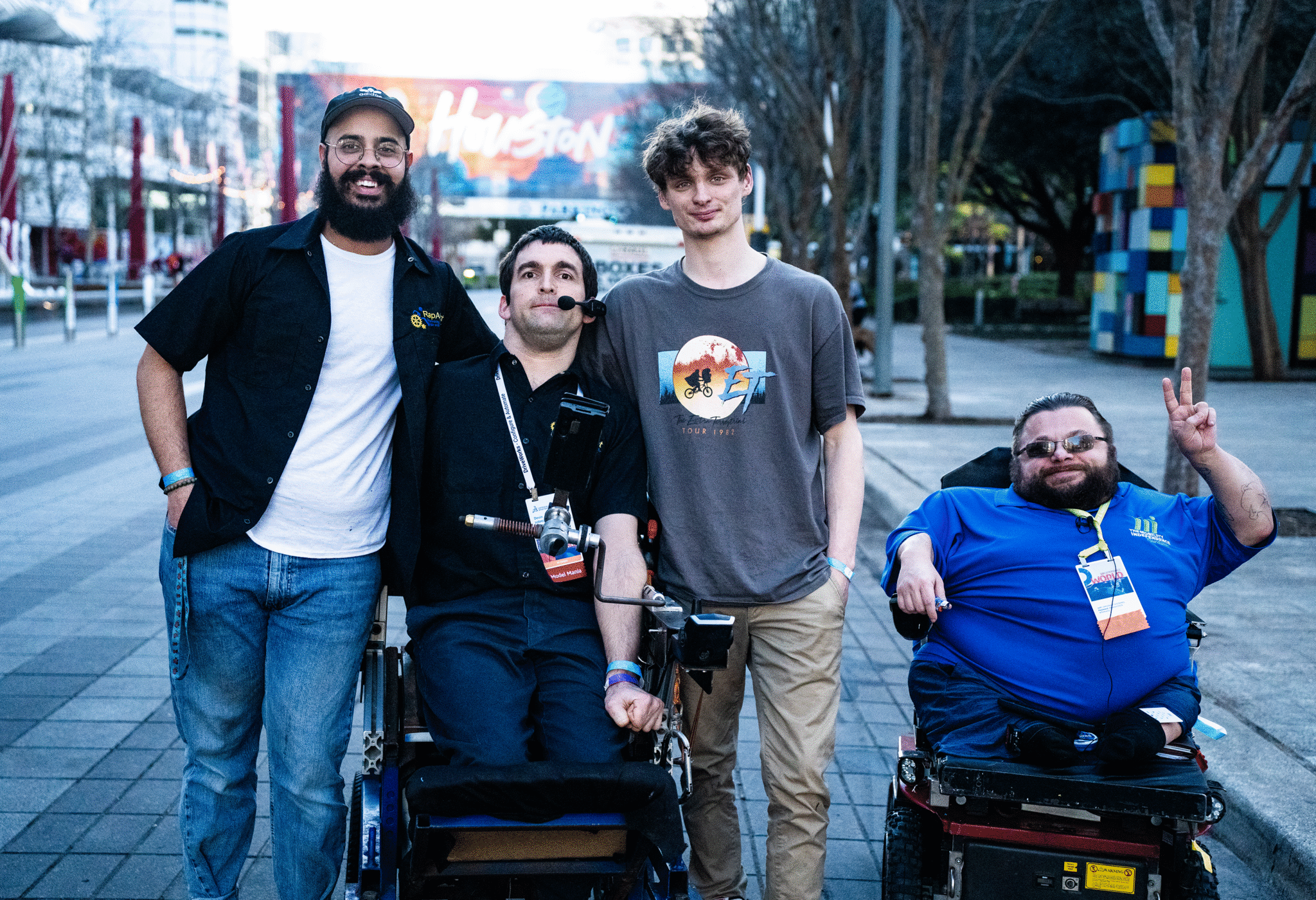My name is Jackie Gadd, and I’m a certified Yoga Instructor. I specialize in Adaptive and Accessible Yoga, which means I utilize props, tools and special skills to bring the principles of yoga to unique populations. I currently guide 14 different adaptive style classes each week in San Diego (mostly chair-based), including ones for adults with ID/DD, active older adults, assisted care seniors and children.

Journey from Traditional to Adaptive Yoga
In 2004, I began taking yoga classes to help my own tired body and stressed mind. Right away, I found the physical practice very challenging. It took some searching to find a teacher that resonated with me, from whom I could learn how treat my body kindly (ahimsa/non-harming) and focus my mind appropriately (dharana/concentration). It was a breakthrough to figure out that yoga was so much more than just stretching and twisting.
I loved learning how yoga related to both physical and energetic anatomy, and how yogic philosophy and the universe are enmeshed. Equally fascinating was the East Indian mythology and history that are embedded in yoga’s 5,000-10,000-year-old DNA. Regular discussion about these topics with friends became part of my practice as well.

One of these friends asked me to mentor a monthly gathering of preteen girls using yoga. With help from other mentors, I wove what I knew of yoga into stories with music and games in the hopes that the girls’ growing brains and bodies might enjoy the experience. The program was short-lived, but it created a unique opportunity for a blossoming age-group to feel recognized, safe and enriched.
The more I practiced, the more I paid attention to how others taught, and the more I realized I wanted to bring yoga to those like the mentored girls. I wanted to teach yoga to people that might not be thought of as “traditional” yogis—that needed the practice adapted for their special needs, or where they might not feel included in studios, or gyms or online.
I started with a few children’s yoga trainings and employed my skills in after school programs. Then I took the plunge into a year-long 200-hour teacher training, followed immediately by a perinatal certification so I could apply yoga to my own experiences as a new, older mom.

During my first studio teaching job my mission to provide “accessible/adaptive” yoga crystallized. Many came to my classes with no experience, with injuries, or physical restrictions, and thought they couldn’t do yoga. Some came in with needs that a mainstream studio environment simply could not meet.
Accessible Yoga Movements Lead to Calm Minds
What I wanted was to create different classes for unique populations; what I needed was to keep learning so I could understand more about those differing needs, and how to meet them with yoga.
I sought out (and continue to seek) trainings for those special skills: yoga for arthritis, yoga for Multiple Sclerosis, chair yoga for seniors, yoga for teens, yoga for eating disorders, yoga for traumatic brain injury, yoga for scoliosis, and yoga for mood disorders to list a few. I bought a lot of books, clicked through hundreds of website pages and most importantly, reached out the communities that support the people I serve, like Accessible Yoga. I compiled a list of trainings, books, programs and websites I have used here, for others to use a resource.
From my personal experience I knew that I first needed to help folks to connect to their breath, and help them feel safe, then maybe later lead their body to movement. I learned how to use my voice, the environment, bolsters, blocks, blankets, straps, chairs, wheelchairs, cushions, and even beds, the floor, and walls to support body awareness, not just make “better” yoga poses.
I learned that even if the body itself doesn’t move, if properly supported, the breath can flow, and the mind can calm. This is the essence of yoga: the calming of the movement of the mind.

My classes often include music and sensory tools, like a Hoberman sphere, to encourage engagement. I use interactive games and partner work for building social skills and sparking creativity. I invite everyone to move at their own pace and trust their own sensations. I hold space for sharing personal experiences, so I can learn from the participants how to make the yoga lessons more meaningful and appropriate for them.
I have taught in school cafeterias, cramped corners of libraries and even shuffled wheelchairs in common spaces of group homes. I’ve set up restorative yoga “lounges” at endurance charity events and I’ve taught chair yoga at outdoor festivals, held many yoga fundraisers and donate time to my community to share the gift of yoga. Regardless of reason or location, when everyone from the site manager to participants, parents and partners have vested interests in success, every class becomes an inviting and accepting place for each unique and wonderful body to experience yoga.
Adaptive Accessible Yoga is my passion. I hope to share it with you at the Dallas Expo, December 13-15!






